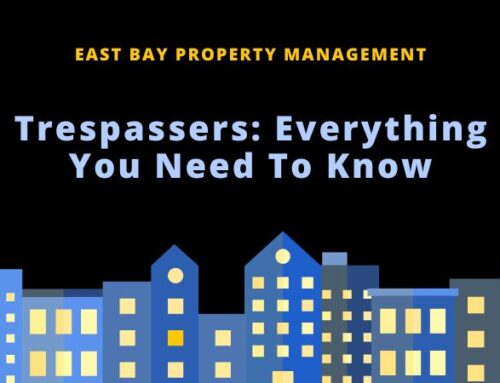As a landlord in California, you’ll have to deal with rent increases. Rent increases in California can be more lucrative for you. However, you must be cautious when doing so and be sure to follow the California rent increase laws.
California’s rent prices have consistently risen over the past 2 decades, making California one of the most expensive cities in the US.
Astronomical rent prices have led to an implementation of a new set of state and local laws in California that started on January 1, 2020. The lower rate of employment and effects of the pandemic prompted California to devise new policies. They wanted to make affordable housing available to those categorized as low and moderate-income tenants.
In this post, we are going over everything landlords need to know about rent control laws and the rent increase law in California.
Keep on reading!
Minimum Rental Raise in California
Landlords often increase the rental rates annually as inflation increases. Typically, the inflation rate swings between 1% to 4%. Annual rent increases are allowed under the Tenant Protection Act of 2019, as known as AB 1482. The Tenant Protection Act allows landlords to raise rent at a minimum of 5% annually.
That said, exemptions apply and some properties are safe from the Tenant Protection Act. This means landlords would have plenty of control over annual rent increases and may raise rent the way they see fit.
Properties That are Exempt from Rent Control Laws
The following California real estate properties are exempted from the Tenant Protection Act of 2019:
- Single family homes
- Condominiums
- Duplexes that are owner occupied
- School and university dorms
- Mobile homes
- Hotels
- Rental properties that are issued by non-profit organizations
- Rental properties subject to a pre-existing local rent control ordinance
- Rental properties constructed within the past 15 years including accessory dwelling rental units
- Rental properties that are not under a corporation, REIT (real estate investment trust), or an LLC where a member is a corporation.

Should a real estate rental property fall under one of these categories, then the landlord must deliver a notice of exemption from AB 1482 to their tenants. Owning properties that are free from rent control laws or the California Tenant Protection Act provides landlords with a lot of leeway when it comes to rent increases.
That said, it’s still vital for landlords and tenants to verify with the local laws to see if there are restrictions or tenant protections in your city. Some California cities may still have local rent control laws.
Maximum Rent Raise in California
Under the California law, landlords can raise rents every year at 5%, plus the annual CPI percentage change.
CPI can be indicative of the economy’s inflation. As determined under AB1482, the CPI percentage change is measured from April 1st of the past year to April 1st of the present year in the region where a landlord’s property is situated. This shows that one region’s CPI can vastly differ from other cities.
To compute the maximum amount that landlords can raise rent in an area, you must refer to the April CPI in your California city.
For the success of your rental business, make sure to respect the maximum allowable rent amount of your city when implementing rent hikes.
Writing a Rent Increase Letter
Under the law, before implementing your rent increase, proper communication must be done. You need to send out a rent increase notice to your renter. The important thing to keep in mind when writing this letter is to use a direct and professional tone. But make sure the letter also sounds courteous.
Note that talking about rent increases can be a sensitive issue, so you want to convey warmth and empathy. This lets your renters know that they’re not simply viewed as financial sources, but valued as people. If you succeed on this front, then you’ll find yourself with long-term tenants who also value the landlord-tenant relationship you’ve fostered.
Here are some tips to keep in mind when crafting the rent increase letter for your tenants:
- Make it personal and use the tenant’s name instead of passing a generic “dear tenant” greeting.
- Make the subject of notice read “Change in Rent Notice” instead of “Rent Increase Notice.” The latter can bear a negative connotation compared to the former.
- Ensure your letter emphasizes your availability to respond to any clarifications and inquiries. Don’t forget to thank them for being your tenant at the end of the letter.
- Even if the letter is direct, it’s recommended that you include a reason for raising the rent price. You can attribute it to the cost of housing renovation and the higher cost of convenient services your tenant experiences. Showing a degree of transparency builds further trust and understanding. The letter therefore will sound more personalized and come off as less demanding.
- You can choose to personally deliver the rent increase notice to your tenants or you can also opt to send it via certified class mail that has a return receipt. Acknowledgment is crucial to ensure clarity. Follow up can be done through email. When you choose to use the mail route, make sure that a certain number of days is allotted for the mail to arrive. After which, you can begin to count the notice period.
- Make sure that the rent increase letter contains the following information:
- Name of the tenant
- Address of the rental unit
- Name and contact information of the landlord
- Written date of the letter
- Effective date of the rent increase
- Amount of the rent increase
- Current rent rate
To make it convenient, you can also place a form below the letter that the tenant can fill out and send back to you. You can provide options such as:
- I agree to the new monthly rent starting on ‘X’ date
- I do not agree to the new monthly rent and will move out by ‘X’ date
If the tenant agrees to the rent increase, the landlord can send a lease agreement renewal letter.

Bottom Line: Rent Control Laws & How to Raise the Rent in California
Initially, it may sound difficult to initiate a rent increase for your East Bay rental. However, following a systematic approach can make it easy. Abiding by the local law of your state and city will ensure you stay out of legal trouble.
If you’re looking for more assistance, consider hiring a property manager who understands the local laws and can professionally navigate the rent increase procedure and lease renewal smoothly.
Contact East Bay Property Management and Consulting for all your property management needs, including rent collection, lease renewal, eviction help, tenant screening and much more!
For information about rent control laws in Fremont, read here.
Disclaimer: This blog on rent control laws is only meant to be informational and isn’t a substitute for legal advice. If you need any more help understanding the law, please consider hiring professional legal services from a qualified attorney.






